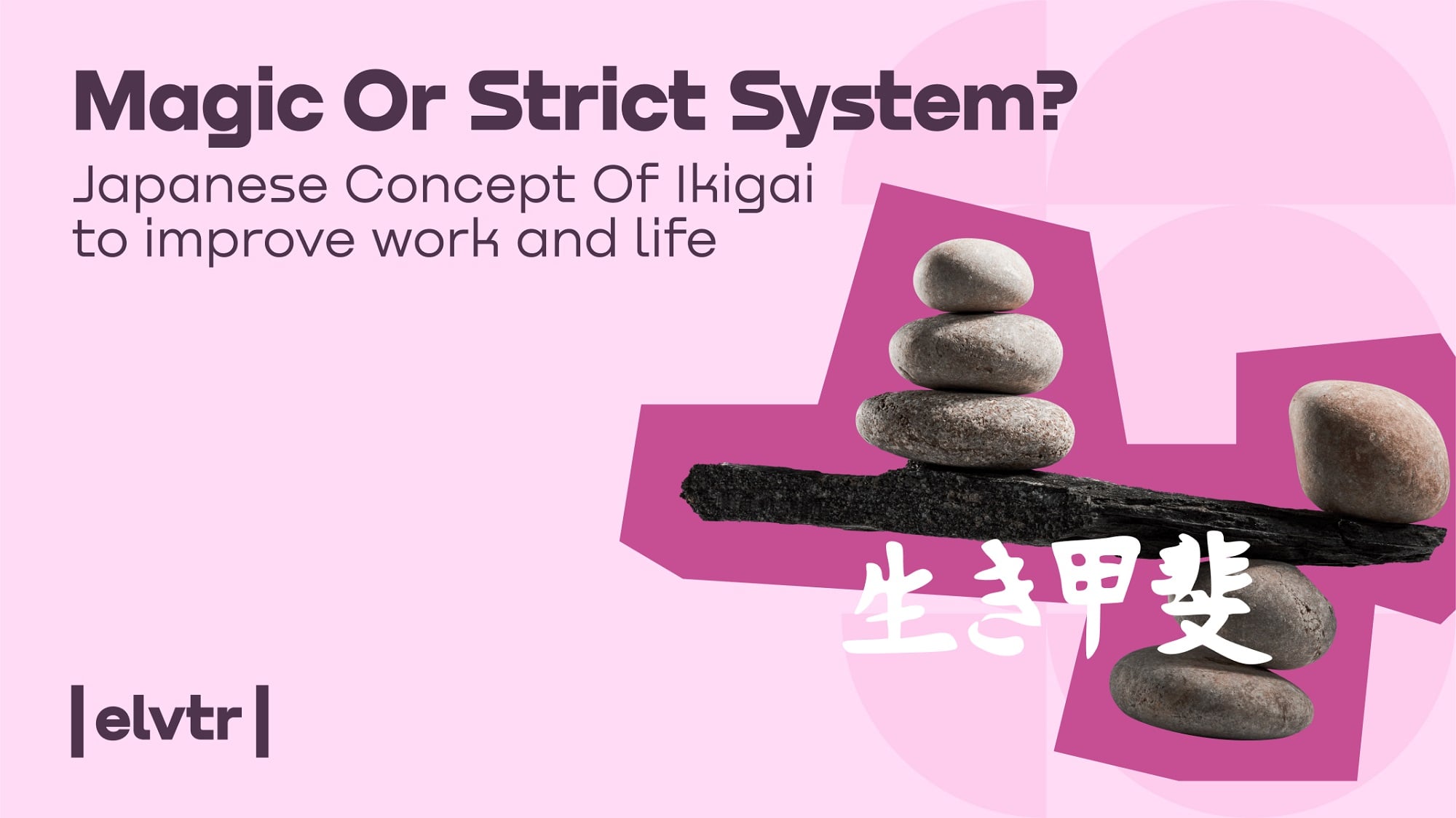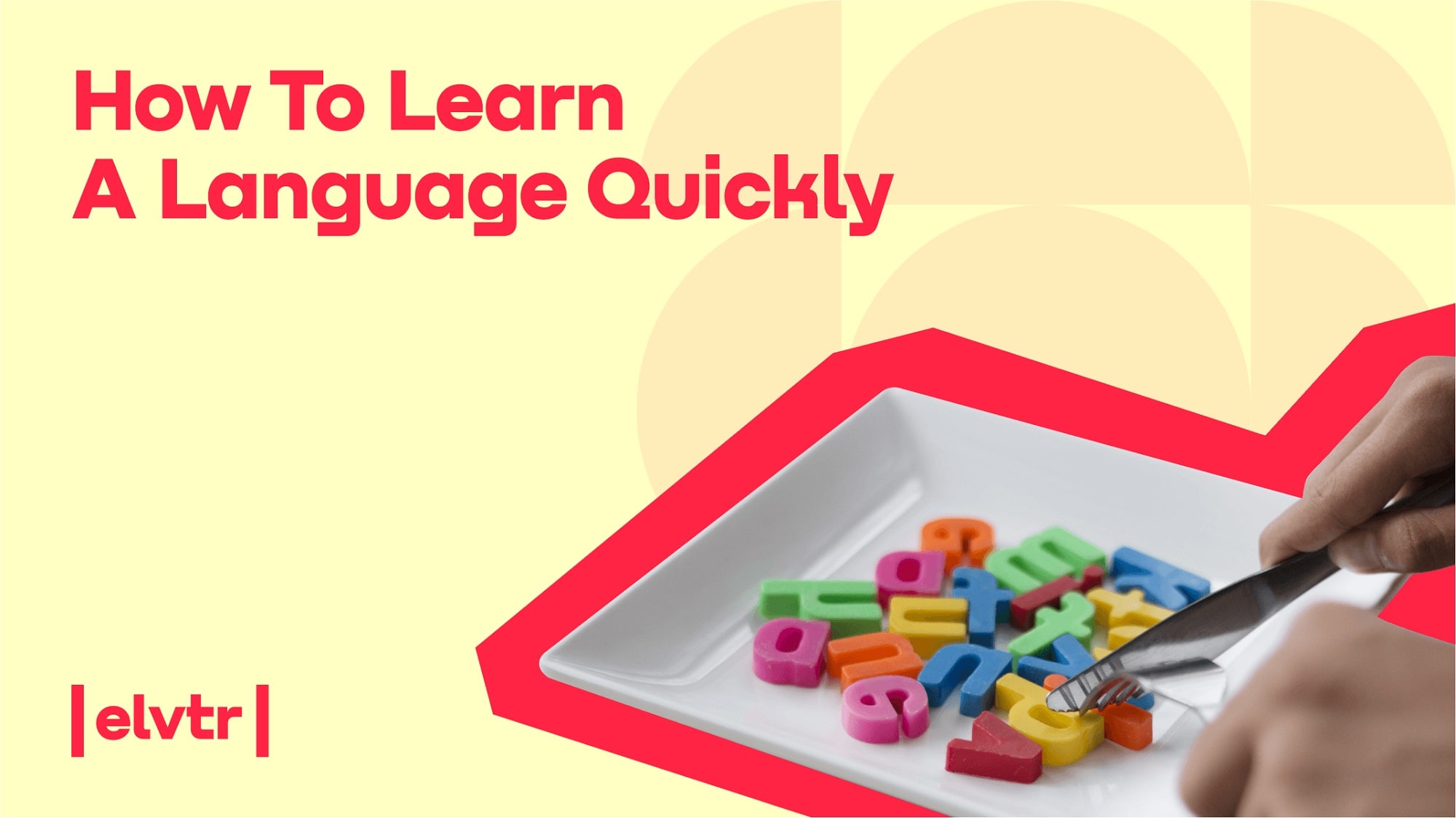- MAIN PAGE
- – elvtr magazine – MAGIC OR STRICT SYSTEM? JAPANESE CONCEPT OF IKIGAI TO IMPROVE WORK AND LIFE
MAGIC OR STRICT SYSTEM? JAPANESE CONCEPT OF IKIGAI TO IMPROVE WORK AND LIFE

Japan introduced us to many simple yet powerful practices that can change our everyday life for the better. For example, Japan's concept of Kintsugi means repairing broken pottery with gold leaf to produce something more valuable and beautiful than the original. It teaches us to value broken things and the opportunity of repairing them; it can be implemented not just into things but also into relationships, processes, and whole businesses.
Another practice is Ikigai, which can help us find purpose in life, heal and build a support system. Let`s take a closer look at this Japanese balance system in our article.
Finding a Meaning in People's Lives
In cooperation with National Geographic, American traveller and writer Dan Buettner spent 5 years researching the “blue zones” — settlements with the most longevity. In the process, scientists tried to identify patterns of nutrition and lifestyle that allow locals to live longer than in other cities or countries.
One of the “blue zones” is located on the island of Okinawa (south of Japan) in the village of Ogimi. The population of Ogimi is only 3 thousand inhabitants, and the place is often called the “village of centenarians” because 80 per cent of its residents reach the age of 90. For men, the average life expectancy is 88 years, and for women it's 92 years.
Ogimi people's diet is known for its high intake of vegetables and seafood, and physical exercises are common. But something else distinguishes the village from the rest of the country and the whole world, and its name is ikigai — Japanese philosophy of searching for the meaning of life or your destiny.
In his book Blue Zones: Lessons from People Who Live Longer, Buettner describes that older people are loved in Okinawa. Elderlies feel obliged to pass their knowledge on to the younger generation, which gives them a purpose outside of themselves and allows them to serve their communities.
Buettner says that the concept of ikigai does not only apply to Okinawans. There might not be a term for it, but the same idea exists among long-lived people in all four Blue Zones, including Sardinia or the Nicoya Peninsula.
What Does Ikigai Mean?
The direct Ikigai definition from Japanese — “meaning of life.” It is a Japanese concept that means a sense of one's purpose in life. Ikigai can be a hobby, profession, or family.
Ikigai refers to the reason for being and is believed to bring fulfilment and satisfaction to one's life. The word "ikigai" is derived from “iki,” which means “life,” and “gai,” which means “value” or “worth.” So, in essence, ikigai refers to what makes life worth living.
Although there are many books about ikigai in Japan, one book is the definitive: Ikigai-ni-tsuite (About Ikigai), published in 1966. Its author, psychiatrist Mieko Kamiya (also called The Mother Of Ikigai) explains that ikigai, as a word, is very similar to happiness but with a subtle distinction in its nuance. Ikigai allows you to see the future even when you are miserable right now. It is what gives you strength, resilience and hope during dark times. Whatever it may be, it is a source of inner light and power.
Making A Difference
An associate professor at Toyo Eiwa University, psychologist Akihiro Hasegawa, has created a model called ‘The Constituent Elements of Ikigai’ to reflect the relationships between the things that lead us to feel ikigai. He discovered that Japanese people believe that a more significant number of small joys in daily life will lead to a more satisfying life.
The concept of ikigai is most usually represented as the intersection of four elements:
- what you love
- what you are good at
- what the world needs
- what you can be paid for
Individuals can discover their purpose and lead fulfilling life by finding the intersection of these four elements. For example, if you love cooking, are good at it, the world needs more good cooks, and you can earn a living as a chef, then your ikigai might be to work as a chef.
Ikigai is about the feeling that your work positively impacts people's lives. Toshimitsu Towa, CEO of Jinzai Kenkyusho, an HR consulting firm, said that Japanese workers thrive in a culture that values the collective over the individual. As a result, they are motivated by helping others, being thanked, and being respected by their coworkers.
But Ikigai is not just about work but also about finding meaning and purpose in all aspects of life. According to a survey of 2,000 Japanese women and men, only 31% considered work as their ikigai in 2010. While work can have a significant role in someone's life, it is not the only thing that matters.
In Japanese culture, having a sense of purpose and meaning in life is considered essential, and the concept of ikigai is one way to help individuals discover their unique path.
YOU WOULD LIKE THIS ARTICLE:

How To Learn A Language Quickly
It's easier than you thought when you have the right tools.
Practical Advice
In the book Ikigai, the Essential Japanese Way to Finding Your Purpose in Life, Ken Mogi (neuroscientist) suggests to start asking yourself the following questions to find the first clues that will help you discover your ikigai:
- What are your most treasured sentimental values?
- What are the little things that give you pleasure?
- What are the small things in the depth of your mind that will carry you through a difficult patch?
- What did you like doing as a child?
- What would the 12-year-old child say about you if they saw you now?
- What absorbs you today so much that you forget to eat and drink?
- Which activities lighten up your eyes and put a smile on your face?
- If you decided to go exploring the world, what would you put in the suitcase?
- What would your activities be like if you were forced to leave your home every single morning and were not allowed to come back before the evening?
- What is easy for you to do?
- What are your talents?
- On which of your activities are you complimented?
- What would it look like if you lived in an ideal world?
Answering those questions is the first step to discovering your ikigai. Ken Mogi also set the five pillars on which the framework of ikigai is based:
#1. Start small
To start small is to make small changes in your life that will gradually improve it: start getting up earlier in the morning, set aside an hour a day for physical activity or an exciting hobby, cook healthy food, etc.
#2. Free yourself
To explain the second principle of ikigai, Ken Moghty gives the example of a child that is carefree and unencumbered by social definitions. The child is not bound by the knots of one or another profession or social status. It would be wonderful to keep this childlike lightness for life.
In other words, to find ikigai, you need to accept yourself and free your essence, to awaken your inner child, and learn to be more direct, courageous and independent of the opinions of others.
#3. Find harmony and stability
Ikigai is directly related to harmony with the following:
- environment
- people around us
- society as a whole
Personal ambitions should always be satisfied with a thought about the state of society and the environment.
#4. Be happy about little things
Start your morning with sweets, green tea or coffee you like. It doesn't matter where you are in the world — if you make it a habit to get your favourite treats (such as chocolate and coffee) after waking up, your brain will release dopamine, prompting you to take action (get up), after which you must receive a reward (chocolate and coffee)".
#5. To be here and now
The ability to be here and now is directly related to the ability to enjoy small things and the ability to free oneself.
The flow or "being here and now" is a state when a person is so involved in their activities that everything else loses significance for them. They find satisfaction in work, and it becomes a means to an end, not an end in itself. That is, you work not to earn money for a living but because you get pleasure from it and self-realisation, achieve your goals and make the world a better place.
Neverending Story Or A Secret To Longevity?
Scientists, journalists, and sociologists have all investigated this phenomenon and come up with a variety of interesting conclusions. One theory is that ikigai may help you live longer and have more direction.
In 2017, the Japanese TV show Takeshi nu katei igaku joined forces with scientists to conduct research in the small town of Kyotango in Kyoto. This place is known for having three times more people over the age of 100 compared to the average of the rest of the country.
The programme was interested in the commonalities of happy elderly people. So it followed seven people in their late 90s to early 100s from dawn until dusk, taking blood tests and doing other health check-ups.
They were struck by the fact that seven of the seven participants had extremely high levels of DHEA — a steroid hormone that the adrenal glands secrete and many believe to be the miracle “longevity” hormone.
Surprisingly, the programme tracked down these men and women, finding one thing in common: they had a hobby that they really enjoyed. A woman in her 90s spent hours each day carving traditional Japanese masks. Another man painted, and another went fishing every day.
Although scientific evidence is not conclusive, it was suggested that having a hobby you love can increase your DHEA levels.
Regardless of your age, you can always find ikigai in the present, in your activities and in the roles you do simply because you enjoy doing them. This concept can help you live a happier life.
*ELVTR is disrupting education by putting proven industry leaders in a virtual classroom with eager rising stars. ELVTR courses offer 100% instructor driven content designed to give you practical knowledge within a convenient time frame. Choose the right course for you!

